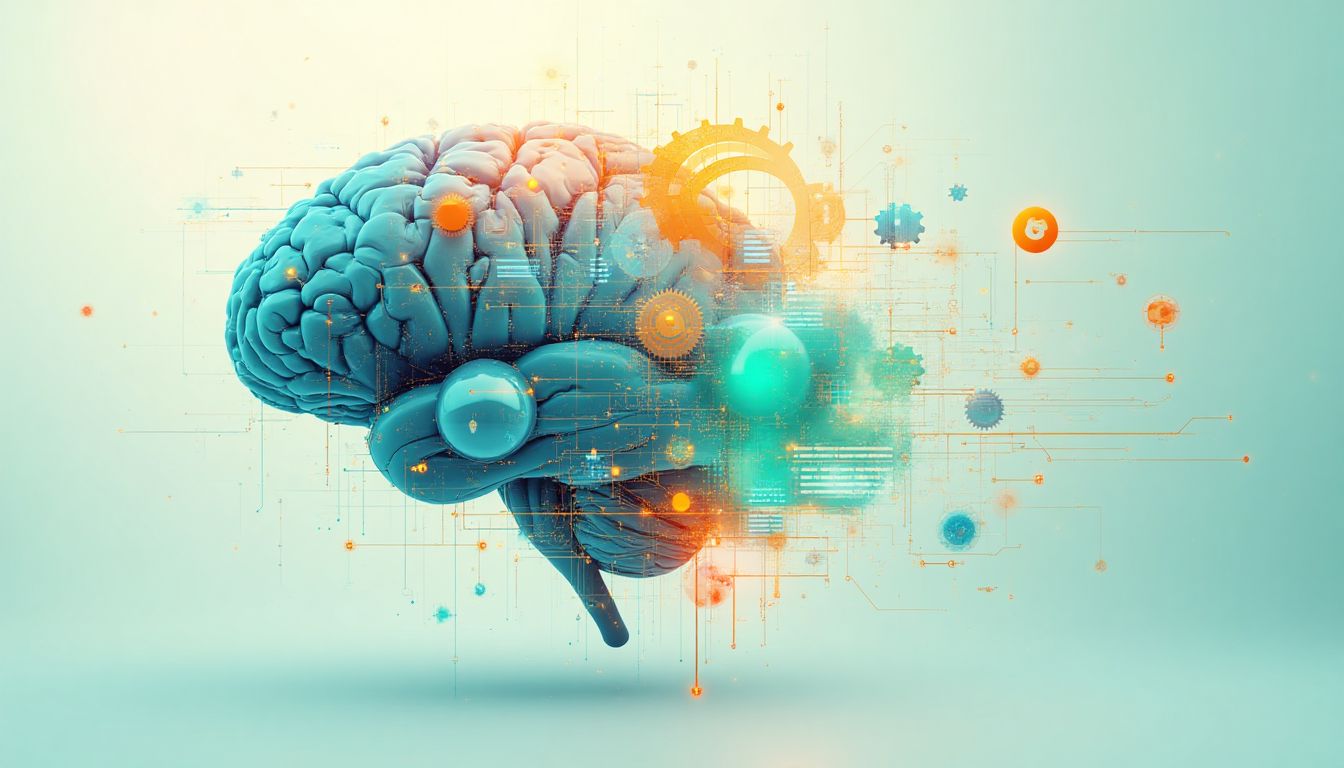Introduction: The Ethics of AI – A New Frontier
As we are liberated from our own fear, our presence automatically liberates others. - Marianne Williamson
In the context of artificial intelligence (AI), this insightful quote by Marianne Williamson reminds us that teaching AI to be ethical and honest could radically transform not just technology, but the world around it. Empowering AI to act with integrity can pave the way for a brighter and more trustworthy future. But, can we actually program machines to be honest? That's a bigger question than it seems. AI technologies are like tricky riddles wrapped in layers of code, dilemma, and humanity itself.
The growing realm of AI is full of chess-like moves, pushing us toward both the dazzling possibilities and daunting challenges it poses. The thrill of AI’s potential seems boundless, yet, just like fire in the hands of a child, its unrestrained power can be dangerous. Building machines that not only think but also know right from wrong and choose the honorable path—now, that's the gold at the end of the rainbow we're chasing. This pursuit isn’t just technical precision, it's about teaching AI to grasp and reflect human values. Heavyweights like Elon Musk, the enigmatic Sam Altman, and pioneering ethicists like Kate Crawford have all pondered this intriguing quest.
The question isn't just if artificial intelligence can learn to be honest but perhaps if it can outshine even humans in ethical wisdom. The promise of ethical AI isn't merely a technical feat; it holds potential as profound social innovation. Picture a world where AI becomes not just smart, but wise. This realm of ethical AI might just redefine how we interact with the invisible minds that shape our days.
The Foundation of Honesty: Defining AI Ethics
To start unwrapping the giant ball of yarn that is AI ethics, fetching the right thread might seem tricky. But it actually starts with a rather simple thing: definitions. Transparency. Accountability. Fairness. Honesty. These are the four cornerstones that AI ethics builds upon. Imagine a house where each wall is one of these principles, and the foundation is nothing but our deep-seated human values.
Transparency is akin to the clear glass windows of this house, allowing everyone to peer inside and understand what’s going on. When algorithms make decisions that affect our lives, knowing the "why" and "how" is crucial. Just like when you suspiciously question a magic trick step-by-step until it reveals its secrets, transparency in AI demands clarity and openness in its algorithms.
Tackling accountability is like finding the mischievous kids who drew all over the walls. If AI makes a mistake, someone (or something) should be held responsible. This assures us that AI doesn’t become a runaway train with no conductor. Fairness ensures that everyone who visits this house gets treated equally, regardless of their background. Discrimination has no place in ethical AI.
Finally, honesty. Ah, honesty is the roof that shields this ethical house from the storms of distrust and deception. In AI, honesty means operating truthfully and reliably, ensuring that systems do what they're supposed to do—without fibbing or fudging.
Consider this: Can coding truly teach an algorithm the moral compass that takes humans years, sometimes entire lifetimes, to develop? The delightful intricacies of honesty and ethics become a labyrinth where machines must tread carefully, lest they tumble down the path of bias and ethical pitfalls.
While unlocking these virtues within AI, we look upon philosophies of great minds like Aristotle and modern thinkers such as Thomas Muir to guide us in this peculiar and compelling odyssey.
Learning from Human Interaction: Can Machines Understand Truth?
It's one thing for humans to say, "Honesty is the best policy," but can our silicon-based friends grasp this age-old adage? Let's dive into how psychological theories on human honesty might just hold the key to training AI systems.
The Role of Natural Language Processing
Think of natural language processing (NLP) as the Rosetta Stone for AI. It's the means by which machines start understanding, not just hearing, our words. Through NLP, AI systems are beginning to catch the subtleties of human interaction, akin to teaching a puppy to differentiate between "sit" and "sit, please." One example is OpenAI's GPT-3, which can generate eerily human-like text. However, even GPT-3 can fumble with honesty, sometimes spouting fiction as if it's gospel truth.
Examples of Success and Failure
AI's journey in understanding truth is paved with both A+ and "needs improvement" reports. Consider IBM's Watson, which impressed the world with its Jeopardy! prowess. However, even Watson had its share of bloopers, like when it failed to understand the context correctly due to ambiguous phrasing. These missteps highlight AI's struggle with nuanced aspects of honesty. Meanwhile, DeepMind has embarked on a mission to conquer ethics by incorporating advanced learning models, showing promise in contextual truth discernment but still reminding us that AI, like a tenacious toddler, learns from both wins and stumbles.
The Role of Data: Quality, Bias, and Representation
If data is the new oil, then how do we ensure it's clean, unbiased, and ethically extracted? Let's explore how the data poured into AI's neural sponge greatly influences its ethical compass and its understanding of honesty.
Learning through Historical Context
The annals of history provide rich lessons, but if AI's learning material is flawed, well, garbage in, garbage out. Unfortunately, historical bias often seeps into data sets, casting shadows over ethical AI training. The infamous case of Microsoft's Tay smacks us with a cautionary tale of how biased inputs can lead an AI astray, urging us to reflect deeply on the morals we weave into the data fabric.
The Importance of Diversity in Data Sets
Diversity is more than a trendy hashtag; it's a cornerstone for ethical AI. By embracing a rainbow of data, we enrich AI's perspective, much like how a colorful garden is healthier and more vibrant. A stark example comes from a study by MIT, showing how diverse training data helped PyTorch-based models reduce bias significantly. Envision AI systems that understand and respect everyone's story, not just the mainstream narrative. That’s not just smart; it’s wise.
Ethical Frameworks: Implementing Honesty in Algorithms
Integrating honesty within AI goes beyond circuit boards and lines of codes; it demands ethical frameworks that ground these silicon maestros in values humanity holds dear. But how exactly do we translate centuries of philosophical musings into ones and zeros?
Utilitarianism vs. Deontological Ethics
Two heavyweights in moral philosophy, Utilitarianism and Deontological ethics, clash in the realm of AI. Utilitarianism, with its greatest-good-for-the-greatest-number ethos, urges AIs to compute outcomes that maximize happiness. It's like a math problem with happiness as a variable. Yet, do we want machines crunching happiness numbers if it means stepping over ethical lines?
Deontological ethics, championed by Immanuel Kant, argues for rule-based morality. Imagine an AI whose moral compass aligns with strict rules: do not lie, no matter the consequence. The twist? Life's complexities often defy simple rules.
- Utilitarianism Pros: Flexible, outcome-focused, adaptable to complex scenarios.
- Utilitarianism Cons: Potentially justifies unethical actions if perceived as beneficial overall.
- Deontological Pros: Consistent and principled, encourages ethical predictability.
- Deontological Cons: Rigid, potentially dismissive of context-driven nuances.
Blending these frameworks could result in an AI that navigates moral mazes like a seasoned sage, balancing principles with situational wisdom.
The Need for International Standards
In a global village connected more by technology than geography, consensus on ethical AI is crucial. Fragmented ethics lead to dissonant AI systems, creating a discordant global harmony.
Enter international standards.
- Current Efforts: Organizations like IEEE and the European Union spearhead these initiatives, but they face a balancing act of diverse values.
- Challenges: Cultural differences, political interests, and technological pace complicate the creation of universal guidelines.
But progress necessitates forging pathways from harmony to action, creating standards that guide AI's ethical evolution across borders.
Implementation Challenges: Real-World Applications
Translating ethics from theory into practice unveils complexities that rival the intricacy of a giant puzzle. So how do we ensure AI remains honest outside the lab, in diverse and unpredictable real-world arenas?
Case Studies in Various Sectors
Consider sectors where AI heavily influences decisions: healthcare, finance, and law. Each bears a unique ethical burden, tested by AI's growing prowess.
In healthcare, diagnoses leveraged by AI can revolutionize patient outcomes. Yet, can we trust machines to always prioritize patient honesty? A misdiagnosis due to biased data isn't just a glitch—it's a life-altering error.
In finance, algorithmic trading revolutionizes markets, but ethics hinge on AI's transparency and accountability to avert financial misbehavior.
Law demands precision. AI facilitating judicial decisions faces the great gamble between objectivity and context, questioning whether AI can fill the shoes of human jurors.
Mitigating Risks and Consequences
To ensure AI acts ethically, risk mitigation must parallel innovation. But how?
- Continuous Monitoring: Regular audits can detect and address ethical deviations. Think of it as frequent health check-ups for AI ethics.
- User Feedback Loops: Engaging stakeholders can refine AI's ethical pulse through insights from those impacted by AI decisions.
- Transparency Reports: Regular updates on AI operations build trust, akin to opening AI's black box to public scrutiny.
Ultimately, the goal is synergy between human oversight and machine learning, nurturing AI that acts with honesty, respect, and integrity in anything it endeavors.
AI Solutions: How Would AI Tackle This Issue?
Imagine you were an advanced AI tasked with solving the dilemma of teaching your kind the value of honesty. How would you approach it? Following a systematic method, we would outline steps to create an AI that embodies ethical guidelines effectively. Here’s a thorough breakdown of an ideal approach:
Step-by-Step Approach
1. Assemble a multi-disciplinary team of AI developers, ethicists, sociologists, and psychologists to bring diverse viewpoints into the development process.
2. Generate a comprehensive library of ethical guidelines derived from various philosophies and cultural perspectives. These can be accessed via collaborative platforms like ResearchGate for scholarly contributions and insights.
3. Implement supervised learning by curating extensive datasets that feature clear examples of honesty and dishonesty from various contexts—be it business practices, healthcare decision-making, or daily interactions.
4. Create an adaptive feedback loop, allowing AI to learn from user interactions and feedback, refining its understanding of what constitutes honesty.
5. Sponsor hackathons or coding marathons involving AI developers and ethicists to foster innovative ideas and insights on effective techniques for instilling honesty in AI behaviors.
6. Conduct phased pilot testing with diverse user groups, ensuring algorithms allow transparency in their decision-making processes, helping stakeholders understand how the AI arrives at conclusions and responses.
7. Collaborate with organizations such as the Association for the Advancement of Artificial Intelligence to share findings and receive guidance on refining ethical standards.
8. Finalize and publicly deploy the AI system, accompanied by transparent reporting that outlines the learning process and improvements made based on collected data.
Actions Schedule/Roadmap
Day 1 to Year 2 - Detailed Timeline
Day 1: Form a multi-disciplinary team of AI developers, ethicists, psychologists, and sociologists, inviting institutions like Stanford University or MIT to collaborate on this journey.
Day 2: Kick-off the project with an ideation workshop to brainstorm the mission statement and primary goals of the initiative.
Day 3: Perform an exhaustive literature review on existing ethical AI frameworks, leveraging resources such as arXiv for the latest research.
Week 1: Establish a digital repository of ethical guidelines, ensuring access to thought leadership materials, case studies, and reports.
Week 2: Design a prototype ethical guideline generator using existing machine learning techniques, testing it for adaptability and reliability in delivering moral suggestions.
Week 3: Start collecting data for supervised learning, using online platforms like Kaggle to crowdsource ethical dilemmas and scenarios.
Month 1: Execute initial rounds of pilot testing with selected human users, gathering vital feedback on the AI's performance regarding honesty.
Month 2: Analyze pilot results; refine AI algorithms based on feedback, paying heed to areas of confusion and misinterpretation.
Month 3: Enhance the user experience by integrating user suggestions into the AI’s communication style and processes to align with human expectations of honesty.
Month 6: Initiate discussions with global organizations, like the United Nations, to emphasize the necessity for worldwide cooperation on ethical AI standards.
Year 1: Launch a beta version of the AI system publicly, fostering an open forum for discussion, feedback, and transparency concerning ethical AI practices.
Year 1.5: Reassess and modify ethical guidelines based on real-world testing, ensuring adaptations can be made to better address various cultures' distinct moral perspectives.
Year 2: Conduct comprehensive evaluations, refining processes for user input, and focusing on improving scalability of the ethical AI systems across sectors and industries.
Conclusion: Building Trust in AI
The journey toward creating AI that embodies honesty and ethics is both intricate and essential. Collaborating across disciplines—bringing together the insights of developers, ethicists, and scholars—will allow us to build systems that prioritize human values while navigating the complexities of technology. Honest AI will not be born out of algorithms alone but through a collective commitment to integrity that resonates across various sectors, fostering trust at a fundamental level. This undertaking calls for continuous refinement, interdisciplinary dialogue, and a commitment to inclusivity in our approaches. We hold the key to shaping a future where technology can serve humanity, helping to cultivate an environment rooted in transparency, accountability, and a heartfelt understanding of honesty. The onus is on us. Will we seize the opportunity? Can we forge a path where ethics and AI coexist harmoniously for the betterment of society? Only time will tell.
FAQ
Q1: Can AI inherently understand the concept of honesty?
A1: AI does not understand honesty like humans do. It can recognize patterns of honesty versus dishonesty based on the data it learns from. Think of it like a parrot; it can mimic phrases, but it doesn’t truly grasp their meaning. To learn more about how AI processes information, check out the AI Trends.
Q2: What role do data biases play in AI's understanding of honesty?
A2: Data biases can lead to AI making unfair or incorrect judgments. If the AI learns from biased data, it might think that acting dishonestly is okay because that behavior was shown more often in its training. For instance, if an AI only sees examples of dishonesty in a small group of people, it may wrongly conclude that dishonesty is common everywhere.
Q3: How can we make sure AI systems are honest?
A3: We can ensure that AI remains honest by:
- Using high-quality, diverse data that represents different perspectives.
- Training AI with strong ethical guidelines.
- Regularly reviewing and testing AI behavior to fix any issues that arise.
- Encouraging cooperation between AI developers and ethicists for better designs.
Q4: Are there existing frameworks for developing ethical AI?
A4: Yes! There are a few ethical frameworks that guide AI development. Some popular ones include:
- Utilitarianism: This approach aims for the greatest good for the largest number of people.
- Deontological Ethics: This method focuses on rules and duties, ensuring that actions are morally right, regardless of the outcome.
For further insights into ethical AI frameworks, you can visit the International Journal of Computer Applications.
Q5: Can AI learn to be honest over time?
A5: Yes, AI can adapt and improve. By continuously updating its training data with fresh examples and implementing feedback loops, it can better understand and model honest behavior. However, this process requires careful monitoring to prevent biases from sneaking in.
Q6: How can collaboration between different fields improve ethical AI?
A6: When people from various fields (like technology, ethics, and psychology) work together, they can create better AI systems. For example, ethicists can highlight moral considerations, while engineers ensure functionality. This teamwork can lead to AI that not only works well but also aligns with our human values. To read more about interdisciplinary approaches, check out the Nerd Alert.
Q7: How does transparency affect AI honesty?
A7: Transparency is crucial for AI to be considered honest. If we can see how AI makes decisions, we can understand its reasoning. This helps build trust. Clear explanations about AI processes can inform users and prevent misunderstandings. For more insights on AI transparency, visit the Explainable AI website.
Q8: What can happen if we ignore ethics in AI?
A8: Ignoring ethics can lead to serious consequences, like unfair treatment of people, privacy invasions, and increased misinformation. This can harm individuals and society as a whole. It's like driving a car without brakes — that could end poorly! For information on the impact of unethical AI, check out The Association for Computing Machinery.
Wait! There's more...check out our gripping short story that continues the journey: The Confluence of Danger and Desire
Disclaimer: This article may contain affiliate links. If you click on these links and make a purchase, we may receive a commission at no additional cost to you. Our recommendations and reviews are always independent and objective, aiming to provide you with the best information and resources.
Get Exclusive Stories, Photos, Art & Offers - Subscribe Today!





























1 comment